Dearborn announced Wednesday it’s bringing back a revamped health department and appointing a director, making it what officials say is probably the only city in southeastern Michigan outside of Detroit to have its own health department.
Mayor Abdullah Hammoud, elected in November, said Ali Abazeed, 31, who previously worked for the National Institute of Health and advised Detroit’s health department, will lead the newly established Department of Public Health.
Dearborn once had its own health department with a medical staff of five that offered patient services such as immunizations, but that shuttered in 2011 for budgetary reasons. The new department will be different, working across city departments and focusing more on disease prevention and societal factors that influence health outcomes, Hammoud said. Officials say it’s a pioneering strategy that hasn’t been widely implemented before, but is backed by public health experts.
Dearborn has faced challenges combatting COVID-19, with the highest number of cases in the county outside of Detroit; high asthma rates in the south end of the city potentially caused by industrial pollution, and a high poverty rate of 26% that affects health.
“I look forward to building a department that addresses the broad range of factors that impact a person’s health — including where they live, learn, work, and play,” Abazeed said in a news release from the city. “We commit to work collaboratively with residents and community partners to promote the full potential for health and well-being for all.”
The city said in the release the new health department will move “beyond point-of-care service & immunizations — an approach often referred to as ‘Public Health 1.0.'”
Instead, they will focus on “Public Health 2.0 and 3.0 models that focus on rigorous population level assessment, policy development, and the social determinants of health.”
A spokesperson of the state Department of Health and Human Services, Chelsea Wuth, said she was not aware of any other city in Michigan besides Detroit that has its own health department.
Most cities and other municipalities in Michigan work with county health departments. Spokespeople for some of the larger cities in Michigan aside from Detroit or their websites indicate they don’t have their own health departments.
Wayne County spokeswoman Tiffani Jackson said the county’s health department “continues to serve as the local public health authority for Out-Wayne County including Dearborn.”
“We look forward to coordinating with the City of Dearborn,” Jackson said. “We are still coordinating processes and procedures going forward.”
A spokesman for Macomb County, Scott Turske, said he wasn’t aware of any city in the county that has its own health department. Bill Mullan, spokesman for Oakland County, did not respond Wednesday to a request for comment.
Like other cities, Dearborn has worked with Wayne County on health issues for years.
“We believe this Department will enhance our relationship with Wayne County Department of Health,” said city spokesman Bilal Baydoun. “Our different mandates will allow us to complement one another while our Department of Public Health allows us to focus on Dearborn and its unique health needs. We have a longstanding relationship with Wayne County and are excited to build on that rich history.”
Dearborn’s previous department was more of a traditional one while the new one is the “first of its kind in terms of its focus on population level health interventions based on a ‘Health In All Policies’ approach that hasn’t yet been implemented widely across American cities,” Baydoun said.
Abazeed was born in Dearborn to Syrian refugees and initially had plans to become a medical doctor, but decided to pursue public health because “I saw a field with such potential that would allow me to scale social impact more broadly,” he said in a 2017 interview with the University of Michigan’s School of Public Health.
He graduated from the University of Michigan with a bachelor’s degree in neuroscience in 2013, a master’s degree from its School of Public Health in 2017, and a master’s degree in public policy from its Gerald R. Ford School of Public Policy, according to his LinkedIn page and the city of Dearborn.
He once worked in Lebanon helping refugees in camps, inspired by his family upbringing, and a desire to help.
More: Dearborn police targeting loud cars after residents complain about the noise
More: Dearborn science center encourages kids to fuel their curiosity with hands-on experiments
“My dad was a professor in Syria,” Abazeed said. “He was forced out of the country in the ’70s for publicly criticizing the human rights record of the Syrian government, and my parents fled to Algeria and then the U.S. I was born and raised in Dearborn. But I feel very connected to refugees through my parent’s experience.”
Getting into a car accident at the age of 16 motivated him to act.
“I like to think I’m on borrowed time,” he said. “It drives my passion in helping people.”
After graduate school, he did research with the university’s Center for Social Epidemiology and Population Health, then became a Presidential Management Fellow at the U.S. Department of Health and Human Services and a public health advisor with the National Institute of Health.
At the Institute, Abazeed worked with the National Cancer Institute on cancer programs and helped contribute to the National Framework for Policy Implementation Science, which works on turning scientific research into public policy.
He also worked in the department’s Office of Refugee Resettlement and the Office of the Assistant Secretary for Policy & Evaluation.
Abazeed has done volunteer work with the Syrian American Medical Society and the Arab American social services group ACCESS in Dearborn.
The mayor, who has a master’s degree in public health, said the COVID-19 pandemic makes it clear that we “need to upgrade our public health systems.”
He said that Dearborn’s health department “is about being accountable to our residents and no longer deferring our responsibility for the public’s health to other venues.”
Hammoud said part of the health department’s role will be “prioritizing environmental justice, and collecting timely, reliable data” to promote health equity in the city.
Dearborn has substantial income gaps between the western and eastern parts of the city. Abazeed said 80% to 90% of the health outcomes of a population are determined by preventative factors, such socioeconomics, behavior and the environment.
“Our public health department will be at the forefront of making our communities healthier,” Abazeed said.
Contact Niraj Warikoo:[email protected] or Twitter @nwarikoo


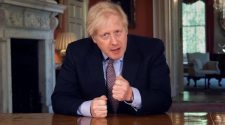

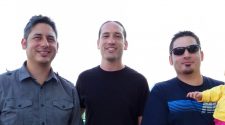
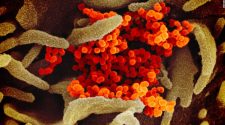








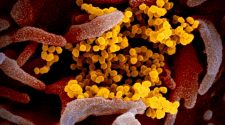

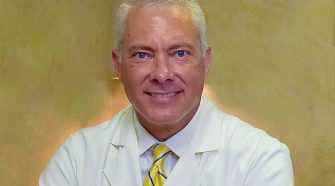
AOC’s ‘concentration camps’ claim was just tip of the iceberg — Here are some of her most controversial comments